Episodes
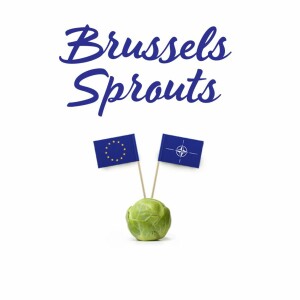
Friday Dec 16, 2022
Friday Dec 16, 2022
In recent weeks, Turkey has been grabbing the headlines with a series of major moves. Just a few days ago, Turkish President Erdogan provoked anxiety in the U.S. and Europe by threatening to strike Athens with ballistic missiles, raising tensions with Greece. Meanwhile, Erdogan and Russian President Putin are reportedly discussing making Turkey a regional hub for Russian natural gas headed to Europe. All of this is occurring against the backdrop of Turkey’s increasingly contentious position within NATO, including its delays in approving membership bids by Finland and Sweden. How might these developments in Turkish foreign policy impact European security and transatlantic relations? Asli Aydintasbas and Steven Cook join Andrea Kendall-Taylor and Jim Townsend to discuss Turkey’s role on the international stage.
-Asli Aydintasbas is a visiting fellow in the Center on the United States and Europe at the Brookings Institution. Prior to joining the foreign policy community, she had a long career in journalism, during which she focused on Turkey, its domestic evolution, and foreign policy in an age of regional reshuffling and geopolitical competition.
-Steven Cook is the Eni Enrico Mattei senior fellow for Middle East and Africa studies at the Council on Foreign Relations. He is an expert on Arab and Turkish politics as well as U.S.-Middle East policy.
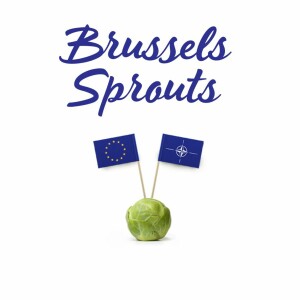
Friday Dec 09, 2022
Friday Dec 09, 2022
What were the key outcomes from the third meeting of the Trade and Technology Council? Tyson Barker and Frances Burwell join Andrea Kendall-Taylor and Carisa Nietsche to discuss their top takeaways and what to look out for in the months ahead.
Tyson Barker is the head of Technology and Global Affairs at the German Council on Foreign Relations. He previously worked at Aspen Germany where, as deputy executive director and fellow, he was responsible for the institute’s digital and transatlantic programs.
Frances G. Burwell is a distinguished fellow at the Atlantic Council and a senior director at McLarty Associates. Her work focuses on the European Union and US-EU relations as well as a range of transatlantic economic, political, and defense issues.
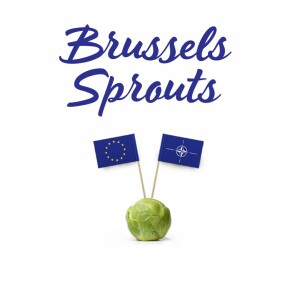
Friday Dec 02, 2022
Friday Dec 02, 2022
Earlier this week, French President Emmanuel Macron arrived in Washington for the first state visit of the Biden administration. This visit comes on the heels of many months of strong transatlantic cooperation in response to Russia’s war against Ukraine. More recently, however, there have been signs of new strains on the transatlantic relationship, in particular with respect to trade issues. There have also been accusations that the United States is attempting to profit from the energy crisis by selling LNG at high prices to Europe. How might these ongoing tensions affect transatlantic cooperation going forward? Liana Fix, Mathieu Droin, and David Kleimann join Andrea Kendall-Taylor and Jim Townsend to discuss how Paris, Berlin, and Brussels view the status of transatlantic relations.
▪ Liana Fix is a fellow for Europe at the Council on Foreign Relations. She is a historian and political scientist, with expertise in German and European foreign and security policy, European security, transatlantic relations, Russia, and Eastern Europe.
▪ Mathieu Droin is a visiting fellow in the Europe, Russia, and Eurasia Program at the Center for Strategic and International Studies, where he focuses on transatlantic European security and defense. Prior to joining CSIS, Mathieu served as deputy head of the strategic affairs unit at the French Ministry for Europe and Foreign Affairs.
▪ David Kleimann is a visiting fellow at Bruegel, where he focuses on the climate and trade policy nexus as well as legal and diplomatic challenges arising from transatlantic and international climate and trade cooperation. David is an expert on trade issues with 15 years of experience in law, policy, and institutions governing EU and international trade.
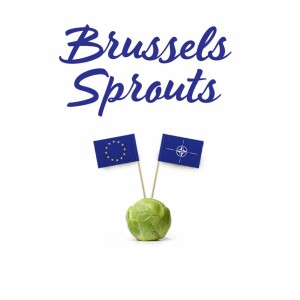
Wednesday Nov 16, 2022
Wednesday Nov 16, 2022
Last week, Kiev reached an important milestone when Russian troops withdrew from the city of Kherson. This retreat has both strategic and symbolic significance, given that Kherson was the only regional capital that Moscow had managed to take since beginning its invasion in February. It also further adds to Ukraine’s momentum over the past few months, during which Kiev has liberated nearly half of the territory originally occupied by Russia. Nevertheless, serious questions remain about the months ahead.Where can Ukraine go from here? How might the U.S. and Europe support Ukraine to end the war sooner rather than later? What are the new risks Kiev may face in the coming months? Michael Kofman and Mick Ryan join Andrea Kendall-Taylor to discuss the implications of the Russian withdrawal from Kherson, and what it means for Ukraine going forward.
Michael Kofman is the Research Program Director in the Russia Studies Program at CNA as well as an Adjunct Senior Fellow at CNAS. His research focuses on Russia and the former Soviet Union, specializing in Russian armed forces, military thought, capabilities, and strategy.
Mick Ryan is an Adjunct Fellow with the Australia Chair at the Center for Strategic and International Studies. He is also a retired major general in the Australian army as well as the author of "War Transformed: The Future of 21st Century Great Power Competition and Conflict."
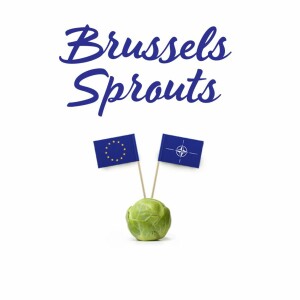
Thursday Nov 10, 2022
Thursday Nov 10, 2022
On Tuesday, November 8th, voters went to the polls in the United States for the first federal elections since President Joe Biden took office. With control of both chambers of the U.S. Congress hanging in the balance, the results of these midterm elections have been highly anticipated not only in the United States but around the world. Although full results are not yet in, it looks likely that Democrats will lose their majority in the House of Representatives, while the Senate remains up for grabs. The shift in Congressional power will raise questions about the Biden Administration’s future ability to execute on its foreign policy agenda. Most significantly, it is unclear to what extent Congress will continue to provide support for Ukraine amidst considerable isolationist sentiment in the Republican party. Other issues of particular concern to allies in Europe include U.S. efforts to tackle climate change, persistent trade tensions, the future U.S. policy toward China, and more. Steve Erlanger and Doug Kriner join Andrea Kendall-Taylor and Carisa Nietsche to unpack what the election results could mean for the future of the transatlantic relationship and international relations more broadly.
Steve Erlanger is the chief diplomatic correspondent in Europe for The New York Times. A two-time Pulitzer Prize recipient, he has previously served as the Times’ bureau chief in seven countries, including posts in London, Paris, Moscow, and Berlin.
Doug Kriner is The Clinton Rossiter Professor in American Institutions in the Department of Government at Cornell University. His research and teaching interests focus on American political institutions and the separation of powers, as well as on US foreign policy.
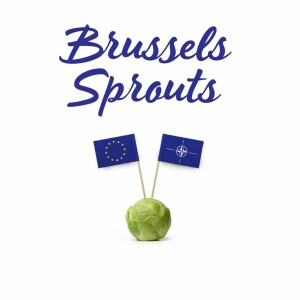
Tuesday Nov 01, 2022
Tuesday Nov 01, 2022
With the conclusion of the Chinese Communist Party’s 20th National Party Congress last week, Xi Jinping has now secured a precedent-breaking third term as general secretary. The Congress was also notable for Xi’s moves to replace the Politburo Standing Committee with a slate of his most committed loyalists, cementing his authoritarian grasp on power. Against the backdrop of these events, E.U. leaders met last week in Brussels to discuss their approach to Beijing, raising concerns over Europe’s continued dependence on China for technology and raw materials. How has the war in Ukraine impacted European attitudes and policies toward China? Will German Chancellor Olaf Scholz’s planned visit to the PRC this week pose a risk to future European cohesion on China? Bonnie Glaser and Dave Shullman join Andrea Kendall-Taylor and Jim Townsend to unpack the party congress and what a third term for Xi means for Europe.
Bonnie Glaser is director of the Asia Program at the German Marshall Fund of the United States. She was previously senior adviser for Asia and the director of the China Power Project at the Center for Strategic and International Studies, while also serving as a nonresident fellow with the Lowy Institute in Sydney, Australia, and a senior associate with the Pacific Forum.
Dave Shullman is senior director of the Global China Hub at the Atlantic Council, where he leads the council’s work on China. He has served as one of the US Government’s top experts on East Asia, most recently as Deputy National Intelligence Officer for East Asia on the National Intelligence Council, where he led the IC’s strategic analysis on East Asia.
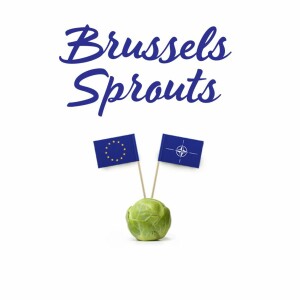
Friday Oct 14, 2022
Friday Oct 14, 2022
As the war in Ukraine continues into its tenth month, it appears to have entered its most dangerous phase yet. During the past week, Russia’s attacks on Ukrainian civilians have intensified, in apparent retaliation for last weekend’s destruction of the Kerch Strait Bridge. Meanwhile, Vladimir Putin’s threats to use nuclear weapons following the annexation of four Ukrainian regions in the east and south have raised alarms across the world, even causing U.S. President Joe Biden to make warnings about the risks of “nuclear Armageddon.” Finally, the Ukrainian counteroffensive continues to make significant progress in reclaiming occupied territory, though it remains unclear to what extent Russia’s partial military mobilization may be able to turn back the tide. Ambassadors Bill Taylor and John Tefft join Andrea Kendall-Taylor to discuss the most recent developments in this increasingly dangerous phase of the war, and how Putin might maneuver going forward.
Bill Taylor is the Vice President for Russia and Eurasia at the United States Institute of Peace. He served as U.S. Ambassador to Ukraine from 2006 to 2009.
John Tefft is a retired U.S. diplomat with more than 45 years of experience in the foreign service. He has previously served as U.S. Ambassador to Russia, Ukraine, Georgia, and Lithuania.
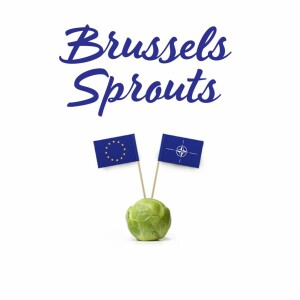
Friday Oct 07, 2022
Friday Oct 07, 2022
Nine years after the launch of the Belt and Road Initiative, China’s flagship global infrastructure investment program is at a critical juncture. While many countries were initially eager to sign up for the initiative, the BRI has recently lost some of its luster in the face of mounting obstacles including delays, corruption, and heavy debt burdens associated with its projects. Over the past year, CNAS researchers have been thinking through how the BRI might develop in the two key regions of Europe and the Indo-Pacific, forecasting different scenarios for its evolution along with their respective consequences. This research recently culminated in the launch of a report entitled “Competitive Connectivity: Crafting Transatlantic Responses to the Belt and Road Initiative,” which outlines how the United States and Europe can work together to compete against the BRI. The authors of the report join Andrea Kendall-Taylor and Jim Townsend to discuss how the BRI stands up nearly a decade after its launch, and how Europe and the U.S. might push against it going forward.
Lisa Curtis is a Senior Fellow and Director of the Indo-Pacific Security Program at CNAS.
Jake Stokes is a Fellow with the Indo-Pacific Security Program at CNAS.
Josh Fitt is an Associate Fellow with the Indo-Pacific Security Program at CNAS.
Carisa Nietsche is an Associate Fellow with the Transatlantic Security Program at CNAS.
Nicholas Lokker is a Research Assistant with the Transatlantic Security Program at CNAS.
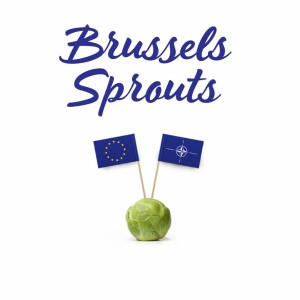
Friday Sep 30, 2022
Friday Sep 30, 2022
This past weekend, voters in Italy went to the polls for national parliamentary elections. As expected, the elections resulted in a victory for the alliance led by Giorgia Meloni’s far-right Brothers of Italy party, which received enough votes to govern without support from the center-left. How significant of a change does this result represent for Italy, and how worried should we be about its implications for Europe and the transatlantic community? Nathalie Tocci and Cecilia Sottilotta
join Andrea Kendall-Taylor and Jim Townsend to move beyond the headlines and assess what Meloni’s victory means for Italian and European politics.
Nathalie Tocci is Director of the Istituto Affari Internazionali and an Honorary Professor at the University of Tübingen. She was previously Special Advisor to EU High Representatives Federica Mogherini and Josep Borrell, during which she wrote the European Union’s Global Strategy and worked on its implementation.
Cecilia Sottilotta is an Assistant Professor at the American University of Rome. She is a leading expert on political risk analysis and is a frequent media commentator on Italian and European affairs.
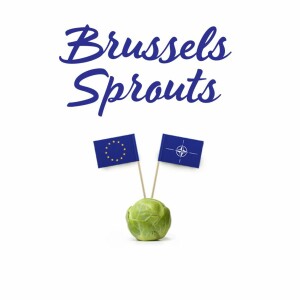
Wednesday Sep 21, 2022
Wednesday Sep 21, 2022
How have recent Ukrainian counteroffensives changed the trajectory of the war? Will Putin’s announcement of Russian mobilization increase the risk of potential escalation? After a highly successful Ukrainian counteroffensive in the North, Putin has now sought to turn the tables with two important developments. First, Kremlin proxies in four Ukrainian regions have announced plans for sham referenda on annexation to Russia. Additionally, Putin has announced a “partial” mobilization in which he plans to bring 300,000 reservists into Ukraine. Mick Ryan and Robert Lee join Andrea Kendall-Taylor and Jim Townsend to discuss the most recent developments shaping the war in both Ukraine and Russia.
Mick Ryan is an Adjunct Fellow with the Australia Chair at the Center for Strategic and International Studies. He is also a retired major general in the Australian army as well as the author of War Transformed: The Future of 21st Century Great Power Competition and Conflict.
Rob Lee is a Senior Fellow in the Foreign Policy Research Institute’s Eurasia Program and a former Marine infantry officer. He is currently completing his PhD on Russian defense policy at King’s College London’s War Studies Department.


